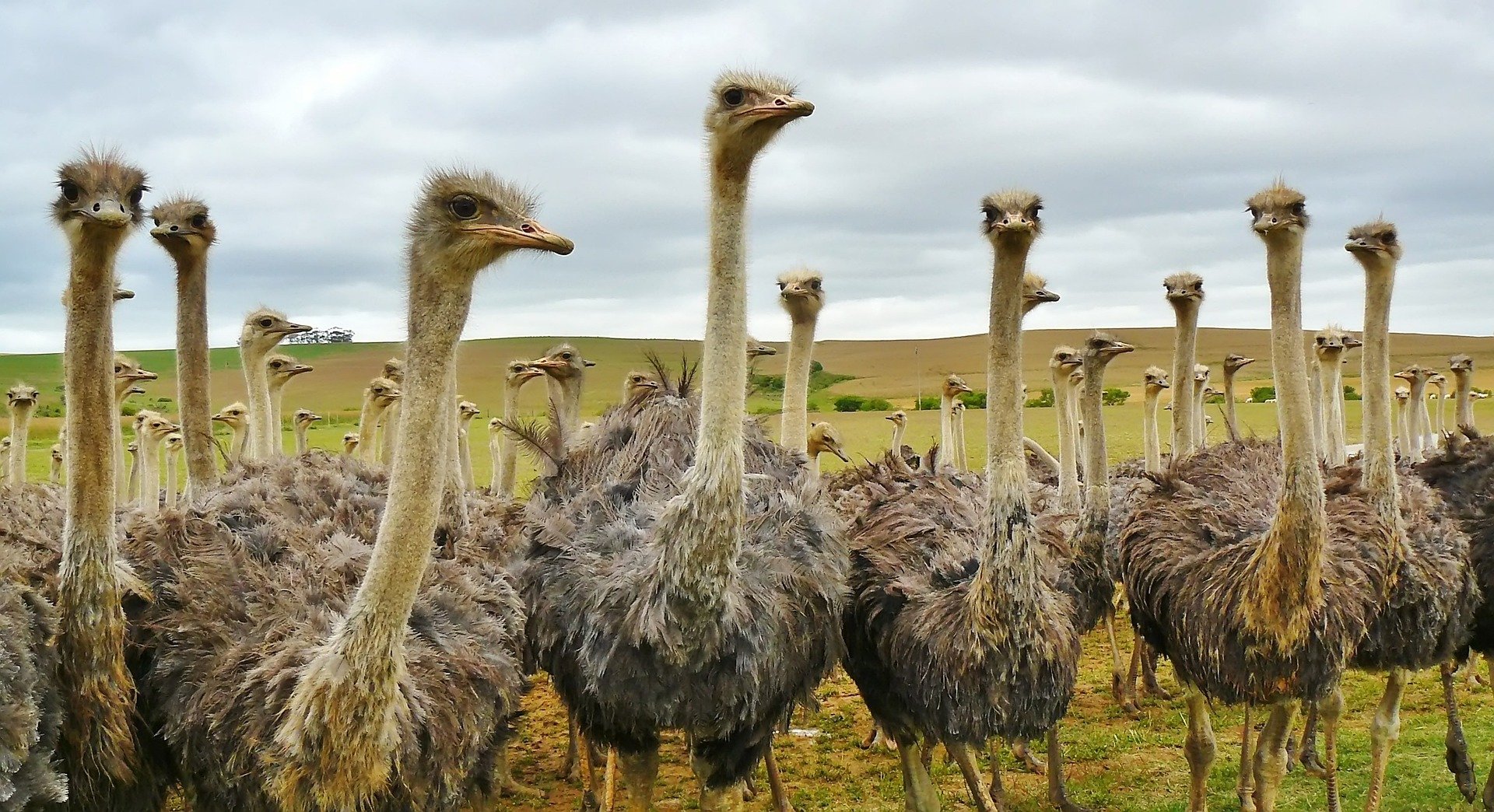‘World’s First’ Vegan Ostrich Feathers Are Here To Make The Fashion Industry More Ethical
With two million ostriches killed for fashion every year, one inventive designer has created ‘ethical plumes’ that mimic ostrich feathers - without slaughtering an animal.
Blue District’s new silky black dress featuring the vegan ostrich feather trim. Credit: Blue District
Ostrich feathers in the fashion industry are used in everything from feather boas to fringed dresses, but the demand helps support ostrich farms which slaughter over two million birds every year.
Now, Texas-based fashion brand Blue District has created an ethical alternative with the launch of what it calls the ‘world’s first’ vegan ostrich feathers.
Led by innovative French designer Cici Voise, the sustainable fashion brand spent two years developing and refining its creation to be the softest and most lightweight alternative to the ostrich feather.
Credit: Blue District
Dubbed ‘ethical plumes’, the vegan ostrich feathers have debuted as part of a vegan silky black dress, complete with a feather-fringe. The piece is the first from Blue District’s upcoming collection that will feature the vegan ostrich feathers throughout.
“By utilising a specific sewing method paired with very fine threading, and eco-friendly dyes, ethical plumes™ can mimic the look and feel of traditional ostrich feathers without causing harm to any animals”, explained Voise, the brand’s founder.
Ostrich Farming
The global demand for ostrich features is mainly met by ostrich farms in South Africa, which supply 75 percent of the world’s ostrich products.
Such farms raise ostriches for their feathers, but also for their body and skins for meat and leather. While ostriches in the wild can live up to 40 years, farmed ostriches are typically killed when they’re one year old.
Animal rights organization People for the Treatment of Animals (PETA) has released several undercover investigations into ostrich farms over the last decade. The most recent footage was released in February this year, and showed workers painfully plucking ostriches’ feathers while the birds were still alive. Young ostriches were also filmed being forcibly restrained by workers before being electrically stunned, their throats slit, and then the feathers torn from their bodies.
Products using ostrich leather and feathers are typically expensive and have long been seen as a sign of luxury, but attitudes towards using the animals for clothing have changed in recent years.
The iconic high-end company Macy’s announced this year that it has banned the sale of exotic skins - which includes the likes of alligators, snakes, lizards, and ostriches - at its stores.
Macy’s is the latest in an increasingly long line of leading brands who have also ditched exotic skins, which includes Burberry, Calvin Klein, Chanel, Tommy Hilfiger and UNIQLO. Such companies are instead looking towards more sustainable, animal-free products, often made with innovative new types of ‘leather’, including those made from pineapples, mushrooms, apples, and cacti. Now, Blue District’s ethical plumes point towards a new future for ethical alternatives to ostrich feathers too.
We Have A Favor To Ask…
Species Unite amplifies well-researched solutions to some of the most abusive animal industries operating today.
At this crucial moment, with worldwide momentum for change building, it’s vital we share these animal-free solutions with the world - and we need your help.
We’re a nonprofit, and so to keep sharing these solutions, we’re relying on you - with your support, we can continue our essential work in growing a powerful community of animal advocates this year.
More stories:
Species Unite
A collection of stories of those who fight the good fight on behalf of animals.






Meat giant JBS USA misled consumers with fake sustainability claims to boost sales, the lawsuit alleges.